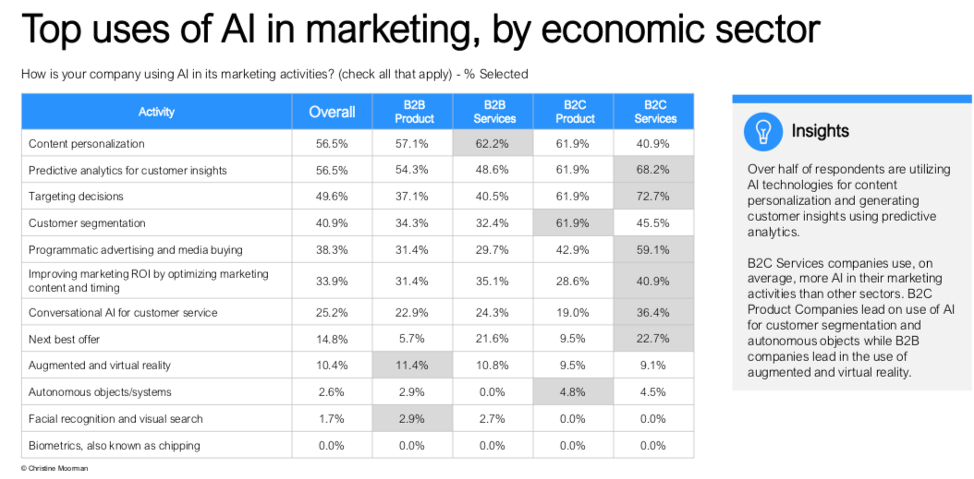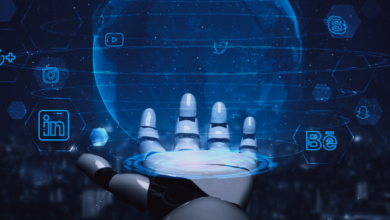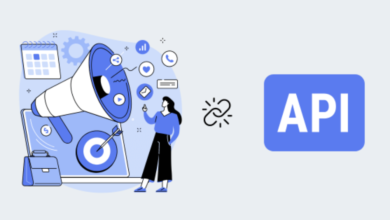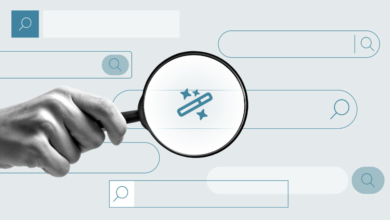
Marketing has always evolved alongside technology, adapting to television, the internet, social media, and mobile phones, to name just a few. Now, artificial intelligence is transforming the way that we approach marketing and customer experience.
The CMO Survey: Highlights and Insights Report, February 2019 detailed the top uses of AI in marketing by 323 senior-level marketing executives in the US.

So, how can you leverage tools such as machine learning, natural language processing, robotic process automation, and image recognition?
Let’s look at six areas where AI can be implemented to better service your customer’s needs, improve the customer experience, and drive efficiency within your organisation.
Customer Insights
Have you ever wished you could be a fly on the wall of some of your customer’s conversations?
Marketing, product development, and customer journey mapping all rely on an innate understanding of your target market and their needs. But previously, customer profiling has always used a large number of assumptions because of difficulties gathering data.
Artificial intelligence allows you to collect enormous quantities of information from online forums, product review sites, blogs, comments, tweets, and news articles. Marketing teams can use this information to identify pain points in the current purchasing methods, product gaps, trends, and insights.

One company that has put these insights into use during their product development process is Taiwan-based phone and computer hardware and consumer electronics company, ASUS.
They used social media monitoring to determine that the most highly valued smartphone attributes to their customers were camera quality and battery life. Using this information, they developed the ASUS ZenFone Zoom S, which featured a dual rear lens camera. This phone has proved to be their most successful product to date.
From a customer’s perspective, more accurate consumer insights will lead to products more suited to their needs, fewer touchpoints to find the right products and services, and seamless purchase and post-sale experience.
Personalisation
Following on from in-depth customer insights, AI’s ability to personalise service and offers is probably causing most excitement in the marketing industry.
Artificial intelligence can process enormous quantities of data to predict user behaviour. Forward-thinking companies are already leveraging these insights to offer personalised service to their customers, improving both customer experience and customer retention.
With a high level of ad fatigue and oversaturation, brands can set themselves apart by delivering value based on the person’s buying history and demographics. This approach means that customers get the information and deals that they want when they want them.
Two companies that are leading the way in personalisation are Netflix and Starbucks.
The Netflix recommendations algorithm, which is driven by AI, has cemented its place as the world’s leading subscription streaming service, with approximately 158 million subscribers in 2019. It considers the viewer’s personal preferences, viewing history and demographics to predict with a high degree of accuracy to suggest new shows and movies. This personalised service is a critical factor in the user’s enjoyment and ease of use.

Starbucks’ spend-based rewards programs deliver over 400,000 different email offers to its customer base each week based on their detailed customer profiles. This customisation has boosted customer sales, customer loyalty, and helps them deliver a great customer experience.
As technology develops further, so will the examples of personalisation. The intelligent prediction will allow brands to pre-empt the customer’s wants and needs so they can customise offers or even ship goods to them before they realise they need to restock.
24/7 Self Service
The internet and the worldwide uptake of smartphones have given us 24/7 access to conduct research, ask questions, and interact online.
For businesses, it provides an additional opportunity for a two-way conversation with customers, but also comes with an expectation of round-the-clock responsiveness. While humans can’t work 24 hours a day and hiring customer service teams in shift-work arrangements to meet this need would be cost-prohibitive, AI self-service tools make this 24/7 accessibility achievable.
The majority of industries have already introduced online booking systems. Even slow adopters, such as the health industry, are moving towards self-service booking systems. And while chatbots are not new, the algorithms behind them are becoming increasingly sophisticated.
Machine learning and natural language processing allow the chatbot to process thousands of queries over a period of time, find answers to questions, make assumptions based on information provided, and clarify customer information.
These technologies also create new product and service categories as the way that we absorb information and communicate with one another evolves.
In the US, HealthJoy has developed an app to empower users to take control of their health decisions. The app allows people to gather information from doctors and insurance experts to maximise the value they receive from their employee healthcare benefits. It is also reducing healthcare costs for employers and relieving strain on health professionals by minimising wasted spend on duplicate tests, false claims, missed treatments, and inefficient care delivery.
Biometrics
With more information being shared online and collected and used by organisations than ever before, data security concerns are at an all-time high. More and more companies are implementing biometric security measures to help protect their customers from cybersecurity attacks.
But this technology can also be leveraged to simplify customer interactions or purchases.
Biometrics uses human characteristics to digitally identify a person and grant them access to a device or system.
A computer or device can identify people via face or voice recognition, fingerprint scanners, and digital signature checks. Many of us use this technology on a day-to-day basis to unlock our phones or log into our internet banking. It has also been deployed in business settings, for example, to ensure that only appropriate healthcare workers can access and alter a patient’s records while they are in hospital.
However, there is some talk of facial recognition or fingerprint technology being used to identify patients to allow immediate access to their health records. The ability to provide urgent and tailored care in an emergency could not only improve the patient experience but improve patient outcomes.

The BBVA headquarters in Madrid offers another fascinating example of the potential for biometrics to transform the customer experience.
The centre, which includes offices and a business conference complex, is trialing the use of facial recognition software to deliver a smoother and more efficient customer experience in their restaurants. Customers can register via a mobile payment app so that when they have completed their meal and are ready to leave, their account can be processed using their biometric print.
Problem Solving
These developments are forcing businesses to deliver more intuitive service. With more companies prioritising user experience as they develop products and services, ignoring customer needs, glitches in the purchase process or providing poor customer service will most likely lead to lack-luster customer retention rates.
With AI, companies can predict what the customer will want, sometimes before they are aware of them themselves. UPS has implemented a schedule of predictive maintenance which allows them to dramatically reduce the number of breakdowns by improving their service schedule. Hospitals can triage patients and more effectively manage staffing needs via big data and predictive analysis.
The ability to recognise and solve a customer or business problem, potentially before it even arises, has the potential to save companies money while simultaneously dramatically improving the customer’s experience.
Efficiency and Process Improvements
One of AI’s greatest strengths is its ability to monitor and process data, learn from this data, and predict the outcome of any changes to variables. Whereas a human team might try something new for a few months before realising that there is a glitch in the process, AI can project what the effects of making that change will be.
For example, you can apply this process to forecast new product sales, potential resource constraints or bottlenecks in a production process.
The use of AI and machine learning to automate processes such as competitor price reviews, social media monitoring, gathering of consumer insights, and statistical analysis can deliver cost and time efficiencies while eliminating human error.
Whatever your industry, there is a raft of opportunities for businesses to innovate around mutually beneficial solutions that serve customers in a new and exciting way.






Insightful overview of AI and automation, especially the Netflix reference, a great example of how to enrich personalised CX using pattern recognition.
[…] At your Service: 6 Ways AI is Revolutionising Marketing and Customer Experience […]
[…] At your Service: 6 Ways AI is Revolutionising Marketing and Customer Experience […]